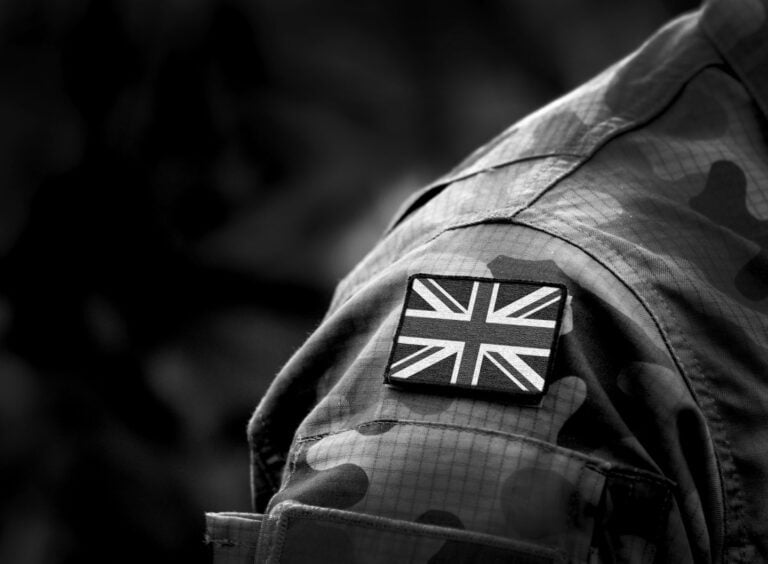Getting the training and employment that supports your life after the forces
Resettlement
Leaving the forces can be extremely daunting, particularly if you’ve worked in the forces for the whole of your career. However, the skills gained in the forces can be really valuable and sought after in the civilian job market. Some people might need help finding jobs their skills might be suited to in the civilian sector while others might want to retrain to have a new vocation.
The resettlement programme is designed to help service personnel successfully enter the civilian job market
Resettlement normally starts two years before an individual is due to leave the armed forces and continues for up to two years after they have left. This period may be extended for those suffering from illness or injury.
The Resettlement programme
The Resettlement programme has 3 stages:
- You firstly need to make contact with a Resettlement Information Staff Officer. They will kick start your journey by providing you with information about what help is available, giving you administrative support and directing you to where you need to go to access the services that are available.
- You’ll then need to meet with a Service Resettlement Adviser who will give you advice about your options and guidance about the resettlement package which will best suit you according to the employment and vocational needs you’ve identified.
- Tri-service support is then provided by the Career Transition Partnership (CTP).
Service leavers have access to a range of vocational training courses delivered at the CTP’s Resettlement Training Centre in Aldershot and in CTP centres across the UK.
The course falls into 4 broad categories:
- Management
- Electrical engineering
- Building trades
- IT
You can also access courses which are designed to teach life skills for those thinking of retiring or being self-employed.
You can find details of what is available and how you will be supported on the CTP website.
The resettlement programme aim is to make you feel supported as you move from forces life into civilian life, to ensure that you have the skills you need to market yourself in the private sector (even if that means communicating forces gained skills in different language for the civilian jobs sector) and for you to have the means to be independent and contribute successfully to civilian life, as you have done in the forces.
The process of transitioning to Civvy Street
The process of transitioning to Civvy Street is challenging for most people leaving the armed forces. The idea of leaving behind a career and a way of life can be very daunting, as is the prospect of having to retrain or find a new job.
The first step in the journey will usually be the resettlement programme, which is designed to help service personnel enter the civilian job market.
Once you have decided what career you would like to pursue you will need to think about whether you will need additional qualifications.
Finding a job in Civvy Street
Once you’ve decided what sort of job or industry you’d like to apply for, and you have got the skills and qualifications you need (or are you studying for them) then you’ll need to begin searching for a suitable role. There is a lot of support and guidance available for how to go about looking for work and applying for jobs. There are many employers who have signed up to the Armed Forces Covenant which may also be a good starting point in your search.
Know your rights
For those whose military career may have been cut short due to an injury, it is important that you know your rights when approaching future employers, or when you start work. It is always challenging finding and starting a new role, and whilst a disability can make this feel additionally challenging, if you have a supportive employer and you know your rights, it can really help enable a smooth transition.
Help with finding a job
You can find guidance on the CTP website about how to approach the job market. Their Employment Engagement Team works to find appropriate vacancies for veterans and also promotes the benefits of recruiting ex-military personnel to employers. You can find out more here.
Most jobs will require you to complete an application form or to submit a covering letter and CV. CTP offer training to help you write your CV. The most important thing when applying for a job is to tailor your application or CV/letter to the job you are applying for.
In terms of searching and applying for jobs you will find helpful guidance on the Prospects website.
You can also contact your local Jobcentre for help finding work.
Organisations/charities who can provide help and support:
The Armed Forces Covenant
The Armed Forces Covenant is a promise from the nation that those who serve or have served in the armed forces, and their families, are treated fairly.
Businesses, charitable and public sector organisations of all sizes who wish to support the armed forces community can sign the covenant. To do so they must have made a pledge setting out how they will offer support for example by participating in military charity events or by supporting employees who choose to be members of the Reserve forces.
Before you apply for a job it is worth checking whether the company you are applying has signed up to the covenant.
You can find details for business who have signed the Armed Forces Covenant here.
Your disability rights at work
If you have suffered an injury during your service which impacts your work then it is important to understand your rights and what your employer is required to do for you.
You are considered disabled under the Equality Act 2010 if you have a physical or mental impairment that has a substantial and long term negative effect on your ability to do normal daily activities. Long term means 12 months or more.
It is against the law for employers to discriminate against you because you have a disability.
The Equality Act 2010 protects you against discrimination at work in the following areas:
- Application forms
- Interview arrangements
- Aptitude tests
- Job offers
- Terms of employment including pay
- Promotions
- Being fired from your job
- Grievances against your employer
Reasonable adjustments in the workplace
An employer has to make reasonable adjustments to avoid you being at a disadvantage compared to a non-disabled person.
Reasonable adjustments might include:
- Changing equipment such as a keyboard or having an adjustable desk;
- Installing a ramp for a wheelchair user;
- Allowing someone with an anxiety disorder to have their own desk instead of hot-desking.
You should speak to your employer about any adjustments that you need to be made to allow you to work safely.
If the help you need at work is not covered by your employer making reasonable adjustments you may be able to get help through the government’s Access to Work scheme.
Sources of advice and support
If you have concerns about disability discrimination at work then Citizens Advice have some helpful information on their website.
You can also find information and advice through the Equality and Human Rights Commission
Accessing Education
Depending on the job you were doing while you were serving in the military and what you want to do once you leave, you may need specific qualifications. Most jobs you are looking at will have a job description which says what qualifications are essential for the role and what qualifications are desirable – that is to say qualifications that are not essential but are helpful to have and might put you at an advantage of getting the role if you are being compared to another candidate.
While you are going through resettlement you will be offered careers advice and you should take this opportunity to review the qualifications you have and what qualifications you might need for the future.
If you want to study to improve your job prospects or for your own enjoyment there are a number of higher education courses you can do which include:
- Diplomas
- Bachelor degrees
- Foundation degrees
- Post-graduate degrees
You can find out more about these courses and how to apply on the government’s website.
Access to Higher Education
If you joined the military after leaving school and without certain GCSEs or A-Levels you may not be eligible for a degree level course.
The Access to High Education Diploma is a nationally-recognised Level 3 qualification which is designed to prepare adults to study in higher education. Access to courses is available in England, Wales and Northern Ireland. You can study at a college or with a training provider, or at home through distance-learning.
You can find more information through Access to Higher Education.
Enhanced Learning Credits (ELC)
If you are concerned about paying for a degree course then you should check whether you are eligible for funding through the Enhanced Learning Credits (ELC) scheme.
The aim of the ELC scheme is to provide funding support to service personnel who wish to pursue academic or vocational qualifications through higher education. The scheme applies to those who have left service. If you are eligible to claim funding you will have up to five years after you leave service in which to apply.
You can find out whether you are eligible and how to apply through the Enhanced Learning Credits Administration Service.
Sources of advice and support
You can find information about applying for higher education on the UCAS website.
You can find information on funding for training/qualifications through Quest.
The following charities can assist with funding:





